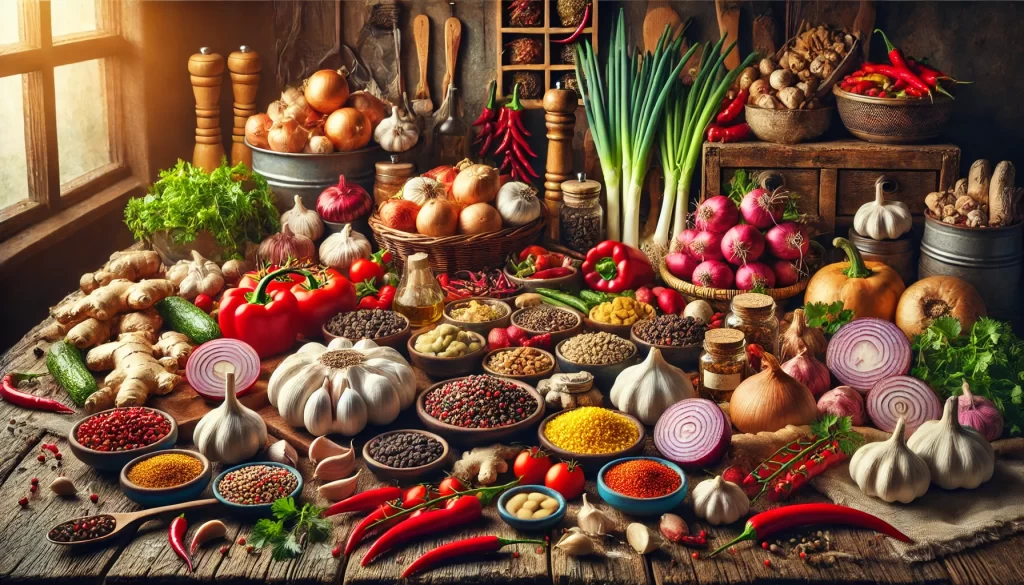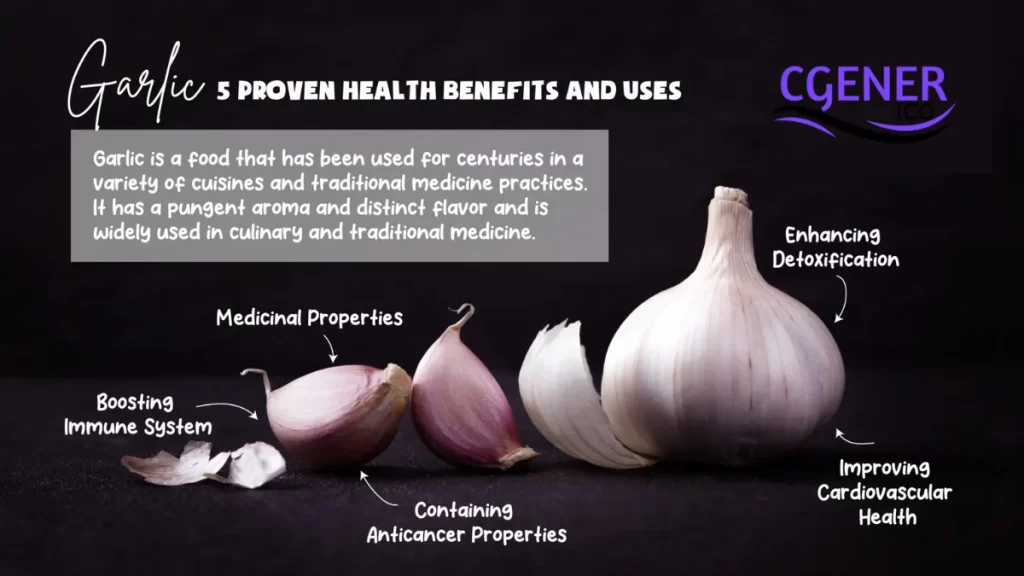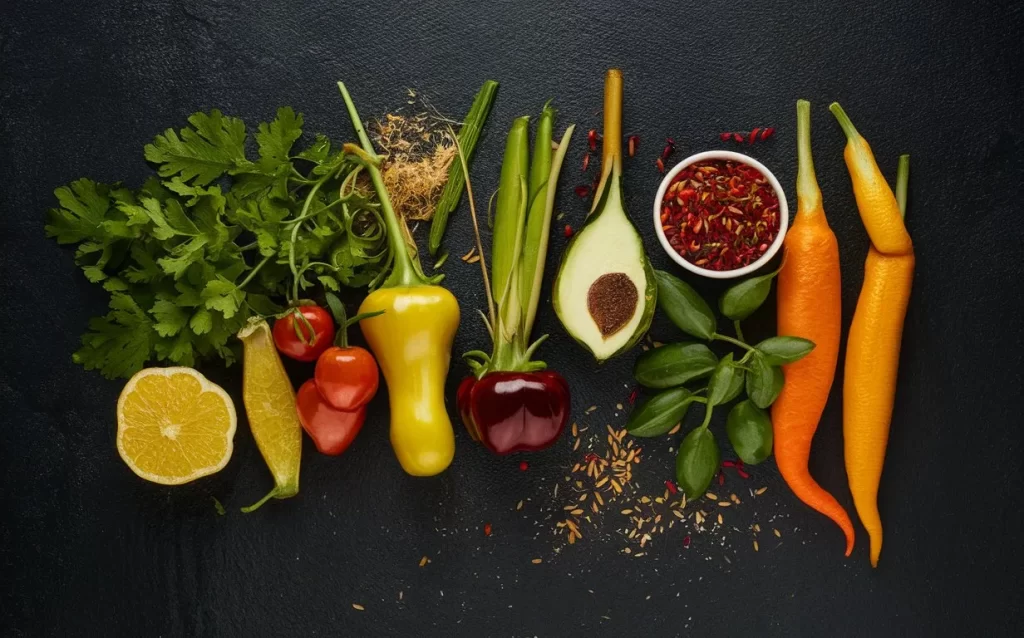Table of Contents
What Types of Foods Are Considered Pungent? Foods with intense, spicy, or harsh flavors are considered pungent. These foods often add depth and intensity to dishes, making them a favorite among enthusiasts who love bold flavors. However, what precisely constitutes a pungent food, and what foods are included in this category? In this article, we will explore what types of foods are considered pungent, discover their unique flavors, and learn how to use them to elevate your culinary creations.
What Types of Foods Are Considered Pungent?
Pungent foods are known for their intense and often spicy taste. These flavors can come from various sources, such as spices, herbs, or certain vegetables. The sharpness of these foods can stimulate your taste buds, creating a memorable and exciting eating experience. According to Ayurveda, spicy taste is one of the six that can affect your doshas, particularly vata and pitta. Examples include hot peppers, wasabi, and aromatic spices such as clove, turmeric, and coriander. Excess pungent taste can aggravate pitta, leading to an imbalance. The sharp, spicy nature of these foods, often found in spicy foods, can also help improve appetite and stimulate digestion.
The Science Behind Pungency
Pungency is primarily caused by chemical compounds that interact with our taste receptors. For example, capsaicin in chili peppers triggers a spicy sensation, while allicin in garlic and onions provides a sharp bite, showcasing the variety of tasting foods. These compounds have health benefits, such as boosting metabolism and providing antioxidants, which can complement the astringent taste of certain foods. From an Ayurvedic perspective, pungent foods are associated with the fire and air elements and are considered drying foods. They stimulate blood circulation and can help clear the sinuses. However, consuming too much pungent food, like chili peppers and wasabi, can also lead to excess fire in the body. To balance this, it’s important to use these pungent spices in moderation, combined with other herbs and spices, such as cumin and coriander seeds, to avoid aggravating pitta and vata doshas.
Ayurvedic Perspective on Pungent
In Ayurveda, spicy taste is one of the six tastes (rasa) that play a crucial role in balancing the body’s doshas: vata, pitta, and kapha. Pungent foods, such as chili peppers, wasabi, and spices like turmeric, clove, and coriander, are considered stimulating and are linked to the fire and air elements, contributing to the six tastes in Ayurveda. According to Ayurveda, these foods can stimulate digestion, improve appetite, and balance the doshas, especially vata and pitta. However, excess pungent taste can aggravate pitta, leading to imbalances in the body. Ayurvedic practices recommend consuming pungent foods in moderation, combined with other tastes like sweet or bitter, to avoid overstimulating the body and to maintain equilibrium. Foods that are too intense may also lead to a drying effect, so they should be balanced with soothing and hydrating foods to prevent excessive heat or dryness.
What Types of Foods Are Considered Pungent: How Pungency Varies in Different Foods
Not all pungent foods are created equal. Some have a mild kick, while others can leave your mouth tingling. The intensity of pungency can vary based on factors like the type of food, how it’s prepared, and even the individual’s taste tolerance.
What Types of Foods Are Considered Pungent? You Should Know About
Below is a list of some of your kitchen’s most common pungent foods.
Spices That Pack a Punch
Spices are the most well-known category of pungent foods. Some popular pungent spices include:
- Chili Peppers: Whether fresh, dried, or powdered, chili peppers are a staple in many cuisines. They bring a fiery heat that can range from mild to extremely hot.
- Black Pepper: This common spice has a sharp, biting flavor that can enhance both savory and sweet dishes.
- Ginger: Known for its warm and spicy flavor, ginger is used in cooking and baking to add a zesty kick.
- Mustard Seeds are not only pungent but can also add a salty taste to dishes.: These small seeds pack a powerful punch and are often used in pickling, sauces, and spice blends.
Pungent Vegetables That Add Depth
Some vegetables are naturally pungent. These vegetables can add a unique flavor to your dishes:
- Garlic: A kitchen essential, garlic’s strong, pungent flavor is used in various cuisines to add depth and complexity.
- Onions: Onions come in different varieties, each with its pungency level. They can be eaten raw for a sharp taste or cooked to mellow their flavor, enhancing the overall food experience.
- Radishes: These crunchy vegetables have a peppery bite that adds a fresh, spicy note to salads and sandwiches.
- Horseradish: Often used in sauces and condiments, horseradish has a powerful heat that can clear your sinuses.
Herbs with a Sharp Flavor
Herbs can also fall into the pungent category. They can bring a sharp and aromatic flavor to your dishes:
- Cilantro: This herb has a distinct, spicy flavor that is either loved or hated. It’s commonly used in Mexican and Asian cuisines.
- Basil: Fresh basil has a peppery and slightly sweet flavor, making it a favorite in Mediterranean dishes.
- Thyme: Thyme has a strong, earthy taste that adds depth to soups, stews, and roasted meats.
Fermented Foods with a Pungent Kick
Fermentation can enhance the pungency of certain foods, creating bold and tangy flavors:
- Kimchi: A staple in Korean cuisine, kimchi is made from fermented vegetables like cabbage and radishes, seasoned with chili powder, garlic, and ginger.
- Sauerkraut: This fermented cabbage dish has a tangy, sour taste that pairs well with meats and sandwiches.
- Blue Cheese: Known for its pungent smell and flavor, it is made from milk inoculated with mold cultures, creating its signature pungency.
What Types of Foods Are Considered Pungent: Pungent Foods’ Function in Cooking

Pungent foods are more than just a source of intense flavor; they can also play an essential role in balancing and enhancing dishes.
Balancing Flavors with Pungency
Spicy foods can balance out other flavors in a dish, such as sweetness or richness. For example, adding a touch of chili to a sweet and savory sauce can create a harmonious blend of flavors that excites the palate. Similarly, a bit of horseradish can cut through the richness of a creamy sauce, making it more palatable.
Pairing Pungent Foods with Other Ingredients
When cooking spicy foods, it’s essential to consider how they pair with other ingredients. Some combinations enhance the overall flavor, while others clash. For instance, garlic pairs well with almost everything, from meats to vegetables, while the radishes’ sharpness can complement a salad’s freshness.
Using Pungent Foods in Various Cuisines
Pungent foods are a staple in many cuisines worldwide. Understanding how different cultures use these foods can inspire you to experiment with new flavors and dishes. Whether it’s the spicy curries of India, the garlicky sauces of Italy, or the tangy kimchi of Korea, there’s a world of pungent flavors to explore.
Also Read: How Is More Food Increase Carrying Capacity: Unlocking Nature’s Secrets
What Types of Foods Are Considered Pungent: Advantages of Pungent Foods for Health

Beyond their bold flavors, spicy foods can also offer various health benefits. What Types of Foods Are Considered Pungent contains compounds that aid digestion, boost metabolism, and even fight inflammation.
Boosting Metabolism and Digestion
Cili peppers and ginger boost metabolism, helping the body burn calories more efficiently. Garlic and onions can also aid digestion by promoting the production of digestive enzymes.
Rich in Antioxidants
Pungent foods often contain antioxidants, which help protect the body from damage caused by free radicals. For example, the allicin in garlic has been shown to have anti-inflammatory and immune-boosting properties.
Supporting Overall Health
Incorporating pungent foods into your diet can contribute to overall health and Wellbeing. These foods can help reduce the risk of chronic diseases, improve heart health, and support a healthy immune system.





